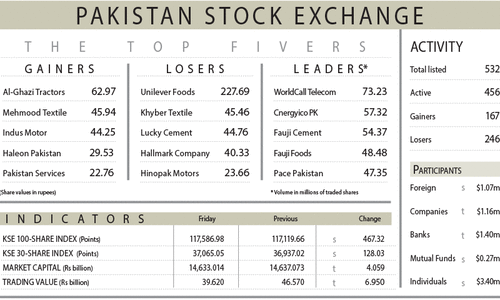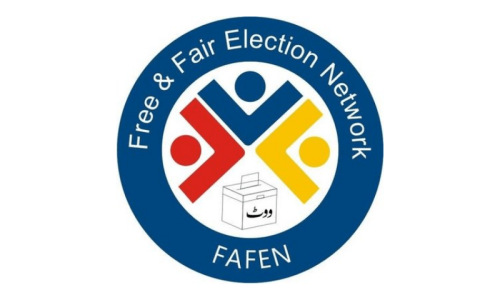KARACHI, July 25: While the environment ministry is concerned over non-adoption of Euro standards in fuels and engines, the commerce ministry has allowed import of old CNG buses from India.
The Pakistan Automotive Manufacturers Association (PAMA) feels that the local industry would collapse with the arrival of old buses and it would render thousands of people jobless in assembly plants and vending industry.
The environment ministry is of the view that pollution in the cities has increased to an alarming level and there was a need to control it for our future generations.
The ministry has stressed the need for working jointly on a war footing to improve air quality, as other countries of the region have successfully accomplished their targets.
The environment ministry, in collaboration with the petroleum ministry, had set up a committee in 1994-1005 to develop a road- map for introduction of clean fuels which included introduction of unleaded gasoline, reduction of sulphur content from diesel and promotion of CNG.
The petroleum ministry introduced unleaded petrol in 2000, while sulphur content in diesel was reduced to 0.6 per cent from one per cent. The low sulphur diesel is highly essential for introducing Euro-II compliant vehicles. Pakistan is lagging behind and there is a need for adopting Euro standards.
To review the Euro-II compliant diesel situation, a meeting between the environment ministry officials and representatives of Pakistan Automotive Manufacturers Association (PAMA), Oil Companies Advisory Committee (OCAC), petroleum ministry officials and Pakistan Environmental Protection Agency (PEPA) was held last month.
The petroleum ministry officials informed the meeting that huge resources are required by refineries to de-sulpharise fuels, and local refineries have to chalk out a $700 million programme to improve their production and reduce sulphur content to 0.5 per cent.
The official mentioned that Pak-Arab Refinery Limited (Parco) would bring low sulphur fuel by June 2010 while other refineries would be in a position to provide it by 2011.
However, the official expected a rise in the price of diesel by Rs2 to 4 per litre if low sulphur diesel is produced, and proposed that this cost impact should be absorbed by refineries.
The PAMA representative stated that they had agreed with the time schedule. All imported petrol driven vehicles would comply with Euro-II standards from July 1, 2009, and all new models, locally manufactured gasoline vehicles would comply with Euro-II standards within a maximum period of three years. However, the representative indicated that a lead time of 18 months would be required by them after availability of low sulphur fuel to adopt Euro-II standards for diesel vehicles.
PAMA in a letter to Federal Commerce Minister Chaudhry Ahmed Mukhtar on July 22, 2008, stated that local bus and truck industry appears very disturbed after the announcement in Trade Policy 2008-2009.
The association recalled that the local industry had met a heavy setback by a similar policy of the previous government in 2005 to 2007 when taking advantage of relaxation provided in the gift, personal baggage and transfer of residence scheme, some 11,261 used trucks were imported against 7,432 trucks produced locally.
Similarly, 1,227 used buses were imported against the total of 1,563 buses produced locally during 20 months (from July 2005 to March 2007).
However, during the last one-and-a-half years, the local industry performed well after withdrawal of relaxation in import of used trucks and buses.
PAMA stated that one of the local assemblers of buses had introduced a CNG bus after making heavy investment and was looking for some support.
The local manufacturers are already facing problems of smuggling and influx of used trucks and buses, prime movers and dumpers under various garbs.
The relaxation in trade policy would open a floodgate of imported used vehicles and the country would become a junkyard of old heavy vehicles.
It would go against government’s policy of modernising the trucking industry.
The PAMA urged the commerce minister to withdraw the announcement of relaxation in the age limit of five years in case of used buses because it would hurt the bus industry seriously. Heavy commercial vehicles are not baggage items and they should not be allowed under the baggage scheme. The local industry should be allowed to first meet the local demand of CNG buses and if the government needs investment in this field from India and elsewhere, such an investment should be allowed on a level-playing field.












































Dear visitor, the comments section is undergoing an overhaul and will return soon.